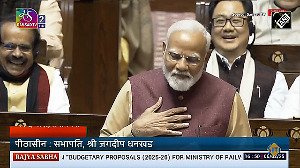Pele's prediction that an African country would win the World Cup by the end of the 20th century was one of only a few things he's got wrong in football.
The nearest any African side has come to it was when Cameroon reached the quarter-finals in 1990, an achievement equalled by Senegal two years ago.
But one African country will emerge with an even bigger prize than the World Cup trophy itself on Saturday when it wins the right to stage the 2010 finals which FIFA awarded to the African continent four years ago.
| |||||||||||
Libya and Tunisia, who are also bidding, have absolutely no chance of succeeding.
Whoever loses out in the final voting will no doubt feel aggrieved and there will be no hiding the disappointment of delegates who, it is safe to say, will not be involved the next time an African country bids for the finals in 2030.
But while emotions will run high on Saturday with jubilant victors and downcast losers, the overall winner is already undoubtedly the continent of Africa and African soccer.
BRAVE DECISION
In a sense the seeds of Africa's World Cup were sown over 30 years ago when Joao Havelange wrested the FIFA presidency from Sir Stanley Rous, the patrician Englishman who had been FIFA president from 1961 until 1974.
Havelange promised a greater say for the majority of FIFA's members. He re-organised the voting procedures, handing each association one vote. He promised more help with development and infrastructure for the smaller poorer nations and he promised more competitions.
Havelange had his critics for his autocratic style of leadership -- but he did deliver on those promises.
The first South American to lead FIFA, he had a greater global vision than the Europeans who had dominated the "world game" since FIFA's founding in 1904 -- and it seems entirely apt that in the week before FIFA celebrates its centenary, the African continent learns who its first World Cup host will be.
FIFA made a brave decision when they agreed the World Cup would be moved around their confederations rather than alternate between Europe and South America.
South Korea and Japan gave Asia a World Cup to be proud of in 2002 and although the finals in 2006 will be held in the comparatively staid setting of Germany, the African finals of 2010 will be unlike the world has ever seen -- wherever they are held.
DIFFERENT STANDARDS
The image of African soccer has changed enormously in the last 10 years. African's best players now play all over Europe from Scotland to Serbia, from Poland to Israel.
The African Cup of Nations, rarely covered by the European media for the first 40 years of its existence, is now shown live on television throughout the world.
Of course there are vastly differing standards from those in Europe and the rest of the world, but players from the poorest parts of Africa are now competing at the highest levels in Europe's top leagues.
Development programmes initiated by UEFA, the European confederation, have helped African clubs, players and referees and FIFA's various assistance programmes are also helping to advance the African game.
South Africa go into Saturday's vote as the slight favourites to win the nomination, but Morocco and Egypt are not far behind and could yet take the prize.
Pele might have been wrong about an African team winning the World Cup by the year 2000 -- but perhaps only by a few years.
Africa has already won the 2010 World Cup in one way -- and by the time it is finished who's to say that there won't be an African world champion on the field too.








 © 2025
© 2025